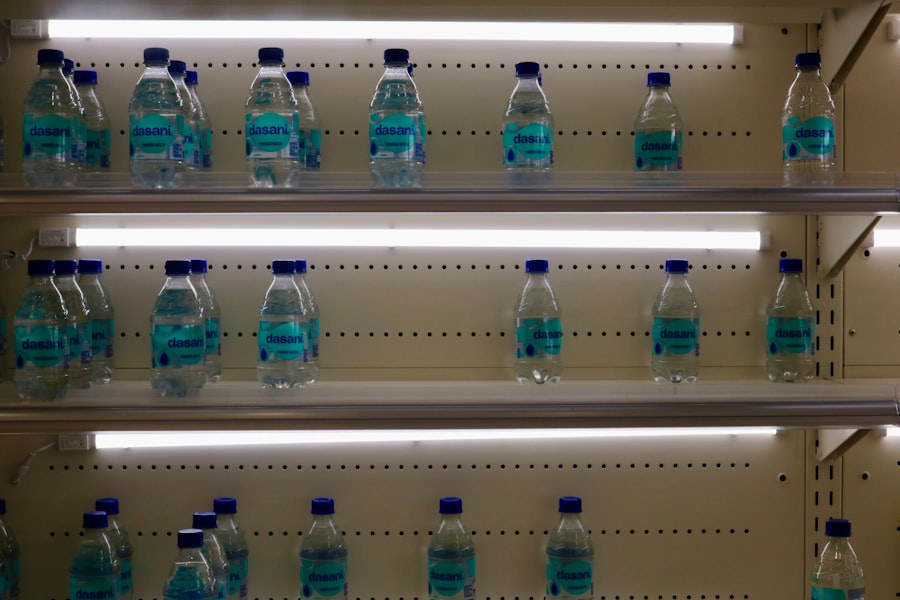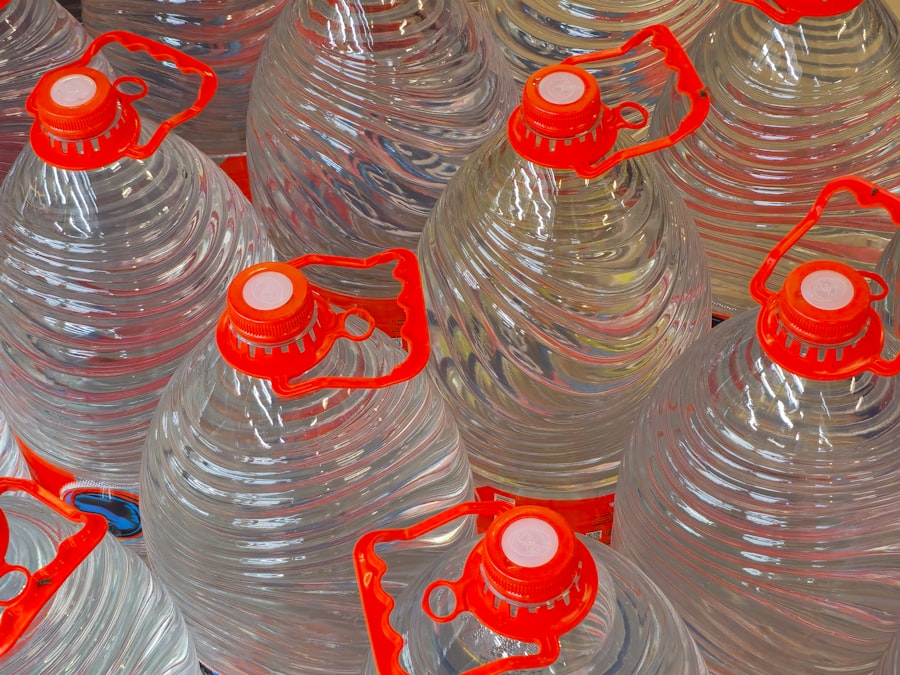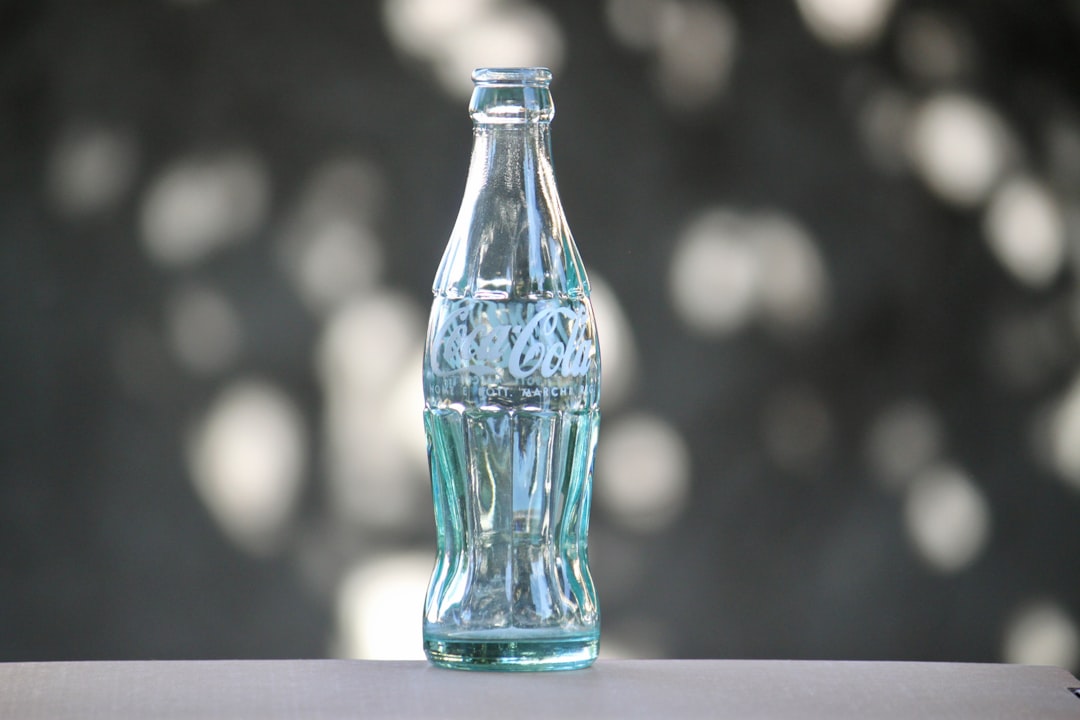Bottled water has become a ubiquitous presence in modern society, often seen as a convenient and portable solution for hydration. From bustling city streets to remote hiking trails, individuals reach for bottled water as a quick way to quench their thirst. The appeal of bottled water lies not only in its convenience but also in the perception of purity and safety that it often conveys.
Many consumers believe that bottled water is a healthier alternative to tap water, leading to a significant increase in its consumption over the past few decades. This trend has transformed bottled water into a multi-billion dollar industry, with numerous brands competing for market share. However, the rise in popularity of bottled water raises important questions about its safety and quality.
While many people trust that bottled water is free from contaminants, the reality is more complex. Understanding the potential risks associated with bottled water is crucial for consumers who wish to make informed choices about their hydration options. As the industry continues to grow, so does the need for transparency regarding the sources, treatment processes, and regulations governing bottled water production.
Key Takeaways
- Bottled water can contain contaminants despite regulations and standards in place.
- Health risks from bottled water include exposure to chemicals and microbial contamination.
- Environmental concerns arise from plastic waste and resource use in bottled water production.
- Alternatives like tap water and filtered water offer safer and more sustainable options.
- Proper selection, storage, and avoiding reuse of bottles are key to ensuring bottled water safety.
Potential Contaminants in Bottled Water
Despite the perception that bottled water is inherently safe, it can still be susceptible to various contaminants. One of the primary concerns is the presence of microplastics, which can leach into the water from the plastic bottles themselves. Studies have shown that microplastics can be found in many brands of bottled water, raising alarms about their potential health effects when ingested.
These tiny particles may originate from the manufacturing process or from environmental pollution, and their long-term impact on human health remains largely unknown. In addition to microplastics, bottled water can also contain chemical contaminants such as heavy metals, pesticides, and other harmful substances. These contaminants may enter the water supply through various means, including industrial runoff or improper filtration processes.
Furthermore, some bottled waters are sourced from municipal supplies, which may not be as pristine as consumers assume. The presence of these contaminants can pose significant health risks, making it essential for consumers to be aware of what they are drinking.
Regulations and Standards for Bottled Water

The regulation of bottled water varies significantly across different countries and regions, leading to discrepancies in safety standards. In the United States, the Food and Drug Administration (FDA) oversees bottled water as a food product, establishing guidelines for labeling, quality, and safety. However, these regulations may not be as stringent as those governing municipal water supplies.
For instance, while tap water must meet strict standards set by the Environmental Protection Agency (EPA), bottled water regulations can sometimes allow for higher levels of certain contaminants. Internationally, organizations such as the World Health Organization (WHO) provide guidelines for bottled water quality, but enforcement can be inconsistent. Some countries may lack comprehensive regulations altogether, leaving consumers vulnerable to unsafe products.
As a result, it is crucial for consumers to research the brands they choose and understand the regulatory landscape in their region to ensure they are selecting safe bottled water.
Health Risks Associated with Bottled Water
| Health Risk | Description | Potential Cause | Impact |
|---|---|---|---|
| Microbial Contamination | Presence of bacteria, viruses, or parasites in bottled water | Improper bottling or storage conditions | Gastrointestinal illnesses, infections |
| Chemical Leaching | Release of chemicals from plastic bottles into water | Exposure to heat or prolonged storage | Hormonal disruption, increased cancer risk |
| Plasticizers (e.g., BPA) | Bisphenol A and similar compounds leaching into water | Use of certain plastics in bottle manufacturing | Endocrine system disruption, reproductive issues |
| Heavy Metal Contamination | Trace metals like lead, arsenic found in some bottled water | Source water contamination or poor filtration | Neurological damage, kidney problems |
| Microplastics | Small plastic particles found in bottled water | Degradation of plastic bottles | Unknown long-term health effects, potential inflammation |
| Fluoride Levels | Excess or insufficient fluoride in bottled water | Natural source variation or lack of regulation | Dental fluorosis or increased risk of cavities |
The health risks associated with bottled water extend beyond potential contaminants; they also include concerns related to plastic exposure. Many bottled waters are packaged in polyethylene terephthalate (PET) bottles, which can release harmful chemicals when exposed to heat or sunlight. One such chemical is bisphenol A (BPA), which has been linked to various health issues, including hormonal disruptions and increased cancer risk.
Although many manufacturers have shifted to BPA-free plastics, concerns about other chemicals remain. Moreover, the long-term consumption of bottled water may lead to nutritional deficiencies if individuals rely solely on it for hydration. Unlike tap water, which often contains essential minerals such as calcium and magnesium, many bottled waters are stripped of these nutrients during processing.
This lack of minerals can contribute to imbalances in dietary intake over time, particularly if individuals do not supplement their diets with other sources of these essential nutrients.
Environmental Impact of Bottled Water
The environmental impact of bottled water is a pressing concern that cannot be overlooked. The production and distribution of plastic bottles contribute significantly to pollution and waste. Each year, millions of tons of plastic waste end up in landfills and oceans, where they can take hundreds of years to decompose.
The extraction of natural resources for bottled water production also raises sustainability issues, particularly in regions facing water scarcity. Additionally, the carbon footprint associated with transporting bottled water is substantial. The energy required for bottling, packaging, and shipping contributes to greenhouse gas emissions that exacerbate climate change.
As awareness of these environmental issues grows, many consumers are beginning to question the sustainability of their bottled water consumption and seek more eco-friendly alternatives.
Benefits of Bottled Water

Despite the concerns surrounding bottled water, it does offer certain benefits that appeal to consumers. One of the primary advantages is convenience; bottled water is readily available in various locations, making it an easy option for on-the-go hydration. For individuals who may not have access to clean tap water or who are traveling in areas with questionable water quality, bottled water provides a reliable source of hydration.
Furthermore, bottled water can serve as a practical solution during emergencies or natural disasters when access to clean drinking water may be compromised. In such situations, having a supply of bottled water on hand can be crucial for maintaining health and safety. Additionally, many brands offer flavored or enhanced waters that cater to diverse tastes and preferences, making hydration more enjoyable for those who may struggle with plain water.
Alternatives to Bottled Water
As awareness of the issues surrounding bottled water grows, many consumers are exploring alternatives that offer both convenience and sustainability. One popular option is reusable water bottles made from stainless steel or glass. These containers not only reduce plastic waste but also allow individuals to carry their preferred beverages without relying on single-use plastics.
Many reusable bottles come equipped with filters that can purify tap water on-the-go, providing an added layer of safety. Another alternative gaining traction is home filtration systems that improve tap water quality.
How to Choose Safe Bottled Water
When selecting bottled water, consumers should prioritize brands that demonstrate transparency regarding their sourcing and treatment processes. Researching the source of the water can provide insight into its quality; spring or mineral waters often contain beneficial minerals that enhance flavor and health benefits. Additionally, consumers should look for certifications from reputable organizations that indicate adherence to safety standards.
Reading labels carefully is also essential; consumers should be aware of any added ingredients or potential contaminants listed on the packaging. Opting for brands that conduct regular testing for contaminants can further ensure safety. By being informed and discerning about their choices, consumers can make better decisions regarding their bottled water consumption.
Proper Storage and Handling of Bottled Water
Proper storage and handling of bottled water are critical factors in maintaining its safety and quality. Bottled water should be stored in a cool, dark place away from direct sunlight and heat sources to prevent chemical leaching from the plastic. High temperatures can accelerate the breakdown of plastic materials, potentially leading to contamination.
Additionally, consumers should pay attention to expiration dates on bottled water labels. While bottled water does not spoil in the traditional sense, its quality can degrade over time due to factors such as exposure to light and heat. Regularly checking storage conditions and adhering to recommended guidelines can help ensure that bottled water remains safe for consumption.
Risks of Reusing Bottled Water Containers
Reusing plastic bottles intended for single use poses several risks that consumers should consider. Over time, repeated use can lead to wear and tear on the bottle material, increasing the likelihood of chemical leaching into the contents. Furthermore, bacteria can accumulate in reused bottles if they are not cleaned properly between uses.
While some individuals may choose to refill plastic bottles for convenience or cost-saving reasons, it is advisable to switch to reusable containers designed for multiple uses instead. These containers are typically made from safer materials that do not leach harmful chemicals and are easier to clean thoroughly.
Is Bottled Water Safe to Drink?
In conclusion, while bottled water offers convenience and accessibility, it is essential for consumers to remain informed about its potential risks and benefits. The presence of contaminants, varying regulations, and environmental impacts all contribute to a complex landscape surrounding bottled water consumption. By understanding these factors and making informed choices—such as selecting reputable brands and considering alternatives—individuals can navigate their hydration options more safely.
Ultimately, whether or not bottled water is safe to drink depends on various factors including sourcing practices, storage conditions, and individual preferences. As awareness continues to grow regarding both health risks and environmental concerns associated with bottled water, consumers are encouraged to explore sustainable alternatives while remaining vigilant about their hydration choices.
When considering the safety of bottled water, it’s essential to explore various perspectives and research findings. A related article that delves into the topic is available at this link. It provides insights into the potential risks and benefits associated with bottled water consumption, helping readers make informed choices about their hydration options.
WATCH THIS! The $400 Billion Water Lie: Why Bottled Water Is a Scam
FAQs
Is bottled water safer than tap water?
Bottled water is generally considered safe to drink as it is regulated by health authorities such as the FDA in the United States. However, tap water in many developed countries is also subject to strict safety standards and is often equally safe. The safety of both depends on local water quality and treatment processes.
What regulations ensure the safety of bottled water?
In the United States, the Food and Drug Administration (FDA) regulates bottled water, setting standards for contaminants, labeling, and manufacturing practices. These regulations are designed to ensure that bottled water is safe for consumption and free from harmful substances.
Can bottled water become contaminated?
Yes, bottled water can become contaminated if it is improperly stored, exposed to heat, or if the bottling process is compromised. Contamination can also occur if bottles are reused without proper cleaning. It is important to store bottled water in a cool, dry place and check expiration dates.
Does bottled water contain harmful chemicals from the plastic bottle?
Some studies have found trace amounts of chemicals like BPA or phthalates in bottled water, especially if bottles are exposed to heat or stored for long periods. However, most bottled water manufacturers use BPA-free plastics, and regulatory agencies set limits to minimize health risks.
Is it safe to drink bottled water past its expiration date?
Bottled water typically has a “best by” date rather than an expiration date. While water itself does not expire, the quality of the bottle and taste may degrade over time. Drinking bottled water past the date is generally safe if the bottle is intact and has been stored properly, but it is best to follow the manufacturer’s guidelines.
How can I tell if bottled water is safe to drink?
Check the bottle for a clear expiration or best-by date, ensure the seal is intact, and store the water in a cool, dark place. If the water appears cloudy, has an unusual odor, or tastes off, it is best not to drink it.
Is bottled water environmentally friendly?
While not directly related to safety, it is important to note that bottled water has environmental impacts due to plastic waste and energy used in production and transportation. Using reusable water bottles and drinking tap water when safe can reduce environmental harm.
